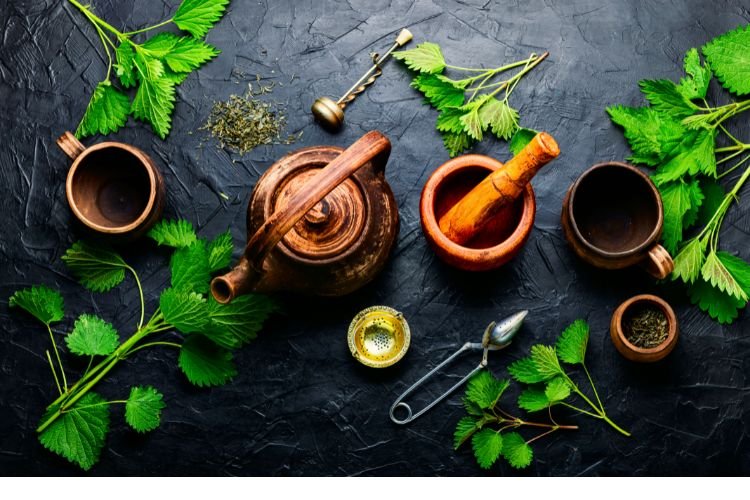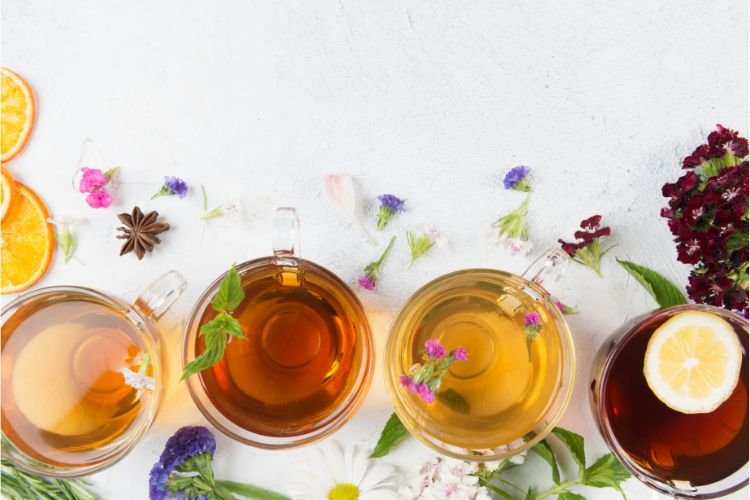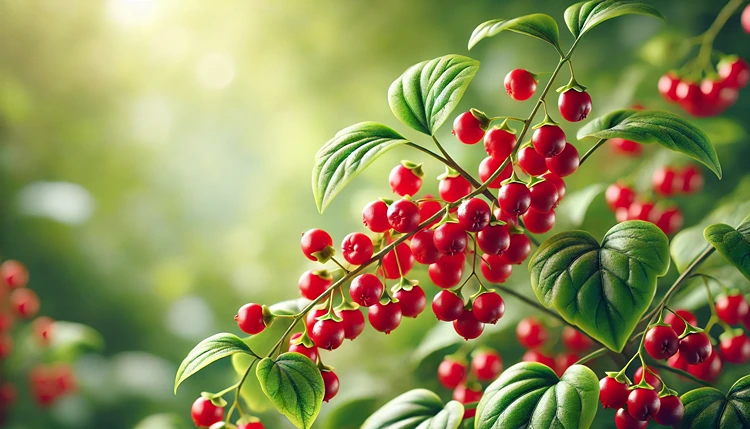
Exploring Schisandra Berry for Natural Stress and Fatigue Relief
Schisandra berry, also known as Schisandra chinensis, is a powerful adaptogenic herb that has been used in traditional Chinese and Russian medicine for centuries. It’s a small, red berry that packs a punch when it comes to supporting the body’s natural ability to manage stress and fight fatigue. While it may look like a typical fruit at first glance, Schisandra is far from ordinary. This unique berry has a flavor that can be described as a combination of sweet, sour, salty, bitter, and pungent — earning it the nickname “five-flavor fruit.”
But beyond its complex taste, Schisandra is prized for its remarkable ability to balance the body’s stress response. When you’re feeling overwhelmed or drained, this tiny berry might be exactly what your system needs.
How Does Schisandra Berry Help with Stress?
In today’s fast-paced world, stress is almost unavoidable. We often feel it at work, at home, or even while dealing with the daily demands of life. Schisandra berry works to combat stress by helping the body adapt to challenges more efficiently. As an adaptogen, it increases your body’s resistance to physical and emotional stressors, which can have a significant impact on overall well-being.
When consumed regularly, Schisandra berries help modulate the production of stress hormones like cortisol. Elevated cortisol levels, often triggered by chronic stress, can lead to various health issues like weight gain, high blood pressure, and difficulty sleeping. Schisandra helps by balancing cortisol levels, allowing the body to manage stress more effectively.
What are Adaptogens?
Adaptogens are natural substances that help the body maintain balance and resist the effects of stress. They don’t remove stress from your life but improve your resilience to it, making the symptoms less severe. Schisandra is one of the most powerful adaptogens, which is why it’s often included in wellness routines to help with stress relief.
Helpful Hint:
To get the most out of Schisandra berries, try adding them to your morning smoothie or tea. A consistent daily dose is key to experiencing their full adaptogenic benefits.
How Schisandra Berry Fights Fatigue
Schisandra is not just a stress-reliever; it’s also a potent tool in the fight against fatigue. Whether your tiredness stems from physical exertion, emotional exhaustion, or a combination of both, Schisandra can help by improving your stamina and energy levels.
When taken regularly, Schisandra supports the adrenal glands, which play a crucial role in managing the body’s response to stress and fatigue. It also helps improve mental clarity, focus, and endurance, making it an ideal supplement for anyone dealing with chronic fatigue or burnout.
Can Schisandra Boost Physical Performance?
Yes, Schisandra has long been used to enhance physical performance and endurance, particularly in athletes. Studies have shown that Schisandra helps improve oxygen uptake and blood flow, leading to better physical stamina and quicker recovery times. Whether you’re hitting the gym or dealing with a demanding day at work, Schisandra can give you the boost you need.
Schisandra for Mental Fatigue
If your fatigue is more mental than physical, Schisandra can still help. It’s known for its cognitive-enhancing properties, improving focus and mental clarity. This makes it especially useful for people who experience brain fog or lack of concentration due to stress or fatigue.
Stats:
A study published in the journal Phytomedicine showed that Schisandra extract significantly improved cognitive function and reduced mental fatigue in participants who were experiencing high levels of stress.
Why Schisandra is Unique Among Adaptogens
While there are many adaptogens available today — such as ashwagandha, rhodiola, and ginseng — Schisandra stands out for its ability to target multiple systems in the body at once. This unique trait makes it more versatile than many other herbs. It’s especially effective in supporting both the nervous and immune systems, which are often impacted by chronic stress and fatigue.
Schisandra’s ability to improve liver function is another reason it’s a favorite among natural health enthusiasts. A healthy liver is essential for proper detoxification, hormone balance, and energy production — all of which are crucial for managing stress and fatigue.
How to Use Schisandra for Stress and Fatigue Relief
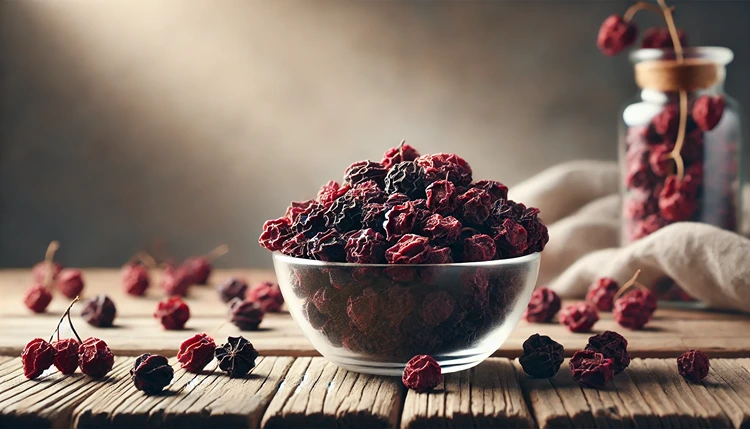
There are several ways to incorporate Schisandra into your daily routine, depending on your preferences and lifestyle. You can take it in capsule form, as a powdered supplement, or brew it as a tea. Many people also enjoy using Schisandra extracts or tinctures, which can be added to water, smoothies, or herbal tonics.
- Capsules: A convenient option if you’re always on the go. Capsules typically contain dried and powdered Schisandra berries.
- Powder: Add it to smoothies, oatmeal, or baked goods for a nutritional boost.
- Tea: Brew Schisandra berries in hot water for a calming, adaptogenic tea that can be enjoyed daily.
How Much Schisandra Should You Take?
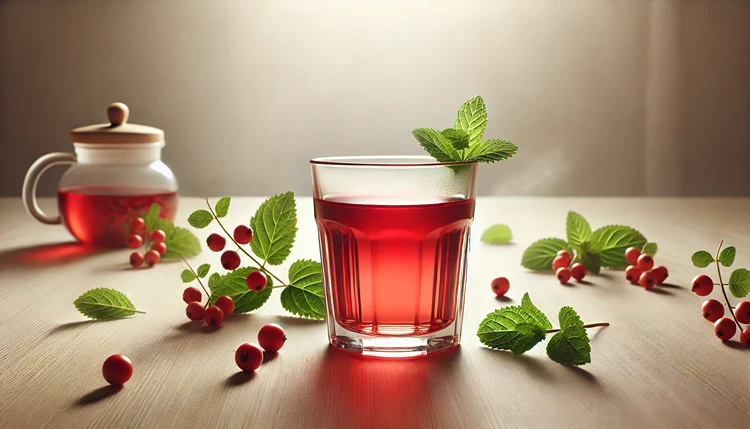
The recommended dosage of Schisandra depends on the form you’re using. Generally, it’s best to follow the guidelines on the product you choose, but many people find that a daily dose of 1-3 grams of dried Schisandra berry powder is effective for managing stress and fatigue. If you’re using a tincture or extract, the dosage will vary, so always consult the product instructions or a healthcare provider.
Helpful Hint:
If you’re new to Schisandra, start with a lower dose and gradually increase it. This will allow your body to adjust and help you find the optimal amount that works for you.
Who Should Use Schisandra Berry?
Schisandra berry is generally safe for most people, but it’s especially beneficial for individuals experiencing chronic stress, fatigue, or burnout. If you feel like you’re constantly juggling work, family, and other responsibilities, and you can’t seem to recharge, Schisandra may help restore balance and boost your energy levels.
It’s also a great option for those who experience brain fog, difficulty concentrating, or low endurance. Whether you’re an athlete looking for enhanced physical performance or someone who needs support managing emotional stress, Schisandra can be a game-changer.
Is Schisandra Safe for Everyone?
While Schisandra is generally well-tolerated, it may not be suitable for everyone. Pregnant or breastfeeding women should avoid using Schisandra unless advised by a healthcare professional. Additionally, people with certain medical conditions, such as epilepsy or severe liver issues, should consult a doctor before adding Schisandra to their routine.
As with any supplement, it’s always a good idea to check with a healthcare provider if you’re taking medication or have any underlying health concerns.
What Are the Side Effects of Schisandra?
For most people, Schisandra is safe when taken in appropriate amounts. However, some individuals may experience mild side effects like digestive upset or reduced appetite. In rare cases, Schisandra may cause allergic reactions, so it’s important to be mindful of any unusual symptoms when you first start using it.
One of the benefits of Schisandra is that it’s considered non-toxic and safe for long-term use. That being said, everyone’s body is different, so it’s important to pay attention to how you feel and adjust your dosage accordingly.
How Schisandra Supports Immune Health
In addition to its stress-relieving and fatigue-fighting properties, Schisandra also supports immune health. Chronic stress and fatigue can weaken the immune system, leaving you more susceptible to illness. Schisandra helps strengthen immune function by promoting a balanced response to stress and protecting the body against free radicals.
Studies have shown that Schisandra has antioxidant properties, which help fight oxidative stress in the body. Oxidative stress occurs when there’s an imbalance between free radicals and antioxidants, leading to damage at the cellular level. By reducing oxidative stress, Schisandra supports overall immune health and helps keep the body functioning optimally.
Stats:
A study published in the journal Antioxidants revealed that Schisandra extract significantly increased antioxidant activity in participants, which in turn enhanced their immune response.
Schisandra for Liver Support
Schisandra is also known for its liver-protecting properties. The liver plays a vital role in detoxifying the body, processing nutrients, and regulating hormones — all of which are essential for managing stress and energy levels. Schisandra helps support healthy liver function by promoting the regeneration of liver cells and improving the body’s natural detoxification processes.
When the liver is functioning optimally, the body can more effectively process toxins and reduce the burden on the adrenal glands, which are responsible for managing stress hormones. This leads to better stress management, more energy, and improved overall health.
Schisandra and Hormonal Balance
For those dealing with hormonal imbalances, Schisandra can provide much-needed support. Stress and fatigue often go hand-in-hand with hormone imbalances, especially when it comes to cortisol, the stress hormone. Schisandra helps balance cortisol levels, which can have a positive ripple effect on other hormones in the body.
In women, Schisandra may also help regulate menstrual cycles and support reproductive health. Its adaptogenic properties make it an excellent choice for managing symptoms related to hormonal fluctuations, such as mood swings, fatigue, and irritability.
Can Schisandra Help with Menopausal Symptoms?
Many women have found Schisandra helpful in managing the symptoms of menopause, such as hot flashes, night sweats, and mood swings. By supporting adrenal function and balancing stress hormones, Schisandra can make the transition through menopause smoother and less stressful.
Helpful Hint:
If you’re experiencing hormone-related fatigue or stress, try pairing Schisandra with other adaptogens like ashwagandha or maca root for a more comprehensive approach to balancing hormones.
How Long Does It Take to Feel the Effects of Schisandra?
Schisandra isn’t a quick fix, but with consistent use, you should start noticing benefits within a few weeks. Some people may experience improvements in energy, focus, and stress levels sooner, while others may take a little longer to see results.
For the best results, it’s important to be patient and allow time for Schisandra to build up in your system. Because it works by supporting the body’s natural processes, the effects are often gradual but long-lasting.
Can You Take Schisandra Long-Term?
Yes, Schisandra is safe for long-term use when taken at the recommended dosage. Many people take Schisandra daily as part of their wellness routine, using it to maintain balance and resilience in the face of ongoing stress. Its adaptogenic properties mean that it works best when used consistently over time, making it a great choice for long-term support.
Where to Find Schisandra Supplements
You can find Schisandra in a variety of forms, including capsules, powders, tinctures, and teas. When choosing a supplement, look for high-quality, organic options to ensure you’re getting the most potent and pure form of the herb. It’s also a good idea to buy from reputable brands that prioritize transparency and third-party testing.
- Capsules: Perfect for those who prefer convenience and want a pre-measured dose.
- Powder: Ideal for mixing into smoothies, teas, or other drinks.
- Tinctures: A concentrated liquid form that can be added to water or taken sublingually.
When purchasing Schisandra supplements, be sure to read the label and choose products that are free of fillers, additives, and artificial ingredients. Organic or wildcrafted Schisandra is often the best choice for ensuring high quality and potency.
FAQs
Final Words
Schisandra berry is a powerful adaptogen that offers natural relief for stress and fatigue, supporting both the body and mind. Whether you’re struggling with chronic stress, burnout, or simply looking to enhance your endurance and mental clarity, Schisandra has a unique ability to restore balance. Its benefits go beyond just stress management; it also supports liver health, hormonal balance, and immune function, making it a versatile tool in holistic wellness.
With its long history in traditional medicine and its growing popularity in modern health practices, Schisandra is becoming a go-to option for those seeking natural, long-term solutions to stress and fatigue. By incorporating this potent berry into your daily routine, you can build resilience, improve focus, and feel more energized in the face of life’s challenges.
If you’re looking for a natural way to manage stress, reduce fatigue, and support your overall well-being, Schisandra berry could be the missing piece to your wellness puzzle. Start small, stay consistent, and experience how this adaptogen can transform your stress response and energy levels over time.







